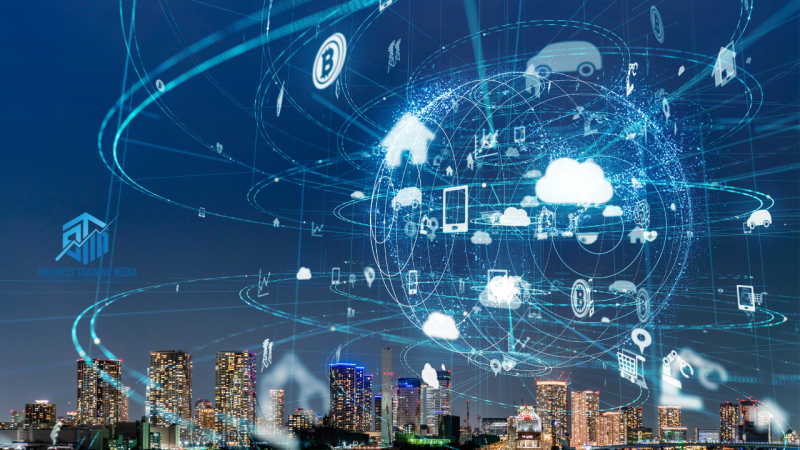
Understanding Information Technology: A Comprehensive Guide
In today's interconnected world, the term "information technology" (IT) has become ubiquitous. From smartphones to supercomputers, IT permeates nearly every aspect of modern life. But what exactly is information technology, and how does it shape our world? In this comprehensive guide, we'll delve into the depths of IT, exploring its definition, evolution, components, applications, and its profound impact on society.
What is information technology?
Information technology (IT) encompasses the use of computers, telecommunications, software, and other devices to store, retrieve, transmit, and manipulate data. At its core, IT involves the management and processing of information to meet the needs of individuals, businesses, and organizations.
Evolution of Information Technology:
The roots of information technology trace back to the development of early computing devices in the 20th century. From mechanical calculators to the invention of the transistor and the emergence of the digital computer, IT has undergone a remarkable evolution.
The advent of the internet in the late 20th century revolutionized the field of IT, enabling global communication and the rapid exchange of information. Subsequent advancements such as cloud computing, big data analytics, artificial intelligence, and the Internet of Things (IoT) have further expanded the capabilities of IT, driving innovation across industries.
Components of Information Technology:
Information technology comprises various components, each playing a vital role in the creation, storage, processing, and dissemination of information.Hardware: This includes computers, servers, networking equipment, storage devices, and peripherals such as printers and scanners.
Software: Software forms the backbone of IT systems, encompassing operating systems, applications, programming languages, and development tools.
Networks: Networks enable the communication and transfer of data between devices, connecting users across different locations.
Data: Data is the lifeblood of IT, encompassing text, images, videos, and other digital content. Effective data management is crucial for leveraging information effectively.
People: People are integral to the field of IT, including professionals such as programmers, system administrators, network engineers, and cybersecurity experts.
Applications of Information Technology:
Information technology finds application in virtually every sector of society, driving innovation, efficiency, and productivity.Business: In the business world, IT systems support functions such as finance, human resources, marketing, and operations. Enterprise resource planning (ERP) systems integrate various business processes, while customer relationship management (CRM) software helps businesses manage interactions with customers.
Education: IT has transformed the field of education, providing access to online learning platforms, interactive educational tools, and virtual classrooms. E-learning platforms offer flexible learning opportunities, while educational software enhances student engagement and performance.
Healthcare: In healthcare, IT systems facilitate electronic health records (EHRs), telemedicine, medical imaging, and patient monitoring. Health information systems improve the efficiency of healthcare delivery and enhance patient outcomes.
Government: Governments use IT to streamline administrative processes, deliver e-government services, and enhance public safety and security. Electronic voting systems, digital identity management, and geographic information systems (GIS) are just a few examples of IT applications in the public sector.
Entertainment: IT has revolutionized the entertainment industry, enabling the creation, distribution, and consumption of digital content. Streaming services, video games, social media platforms, and digital art are all made possible by IT innovations.
Challenges and Opportunities:
While information technology offers immense benefits, it also presents challenges and opportunities for society.
Cybersecurity: With the increasing digitization of data, cybersecurity has become a major concern. Threats such as malware, ransomware, phishing attacks, and data breaches pose risks to individuals, businesses, and governments. Addressing cybersecurity threats requires robust measures such as encryption, intrusion detection systems, and user education.
Privacy: The collection and analysis of vast amounts of data raise concerns about privacy and data protection. Regulations such as the General Data Protection Regulation (GDPR) in Europe aim to safeguard individuals' personal information and ensure transparency in data handling practices.
Digital Divide: The digital divide refers to the gap between those who have access to information technology and those who do not. Disparities in access to broadband internet, computing devices, and digital literacy skills can exacerbate social and economic inequalities.
Ethical Considerations: IT advancements raise ethical questions related to surveillance, artificial intelligence, automation, and algorithmic bias. Ethical frameworks and guidelines are needed to ensure that IT technologies are developed and deployed responsibly, respecting human rights and societal values.
Future Trends:
Looking ahead, several key trends are poised to shape the future of information technology:
Artificial Intelligence and Machine Learning: Advances in AI and machine learning are unlocking new possibilities in areas such as autonomous vehicles, predictive analytics, natural language processing, and robotics.
Internet of Things (IoT): The IoT involves connecting everyday objects to the internet, enabling data collection, monitoring, and control. IoT applications range from smart home devices and wearable technology to industrial sensors and smart cities.
5G Technology: The rollout of 5G networks promises faster data speeds, lower latency, and greater connectivity, paving the way for innovations such as augmented reality, remote surgery, and smart infrastructure.
Quantum Computing: Quantum computing holds the potential to solve complex problems that are beyond the capabilities of classical computers. Quantum computers could revolutionize fields such as cryptography, drug discovery, and materials science.
Information technology is a dynamic and multifaceted field that permeates every aspect of modern life. From the devices we use to the systems that power businesses and governments, IT shapes our world in profound ways. By understanding the components, applications, challenges, and opportunities of information technology, we can navigate the complexities of the digital age and harness its transformative potential for the benefit of society.
Copyright 2024: Business Training Media




